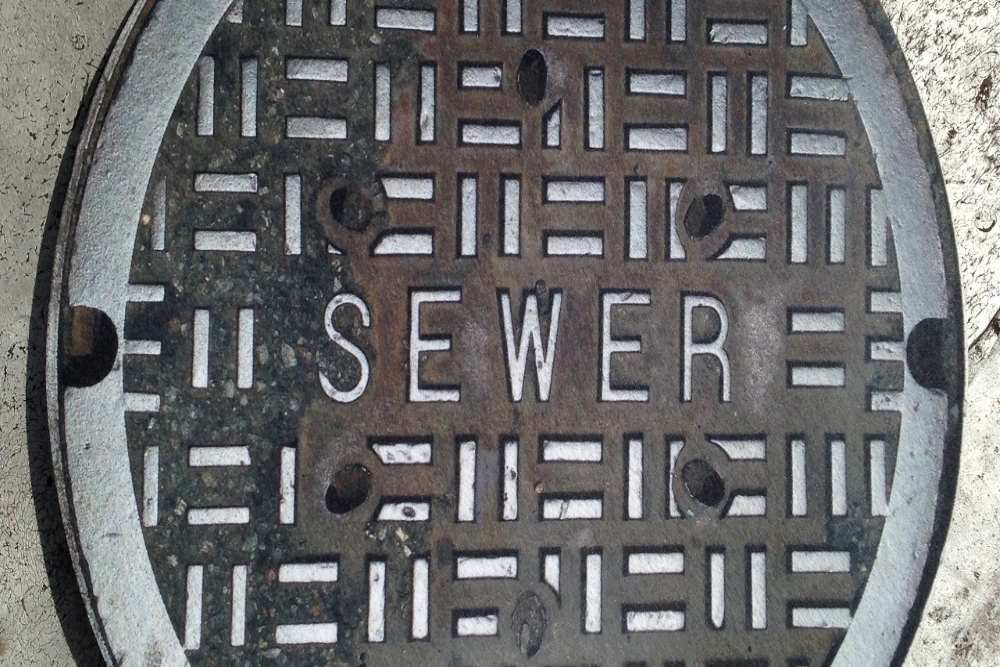PITTSBURGH – The City of Clairton is petitioning to send a lawsuit regarding its acquisition of the sewer system, brought by a Clairton municipal service provider and two borough citizens, to the local county court’s Commerce and Complex Litigation Center.
Clairton Municipal Authority, James Cerqua and Doug Ozvath first filed suit in the Allegheny County Court of Common Pleas on Nov. 16 versus The City of Clairton. All parties are based in Clairton.
“On Nov. 10, 2020, the City of Clairton, by and through its council and mayor, placed as new business on the meeting’s agenda the consideration of a motion approving Ordinance No. 1957,” the suit said.
“In particular part, the agenda stated: Consider a motion approving Ordinance No. 1957, requiring the Clairton Municipal Authority to convey the sewer system and all property and assets of the Authority to the City under provisions of Section 5619 and Section 5622 of the Municipal Authorities Act.”
The agenda also sought to establish a conveyance date by which the Authority would transfer the sewer system, all of its property and assets, assumption of all of the Authority’s financial obligations and non-financial obligations and the notification of the Authority and all other parties to immediately cease and desist from all actions or activities that could decrease the value of the sewer system – plus, the appointment of RBC Capital as Sell-Side Advisor.
“Prior to calling the meeting to order, the defendant offered tickets whereby only 16 individuals from the public could attend, live, in present, to voice any comment or opinion to these two new business items. Individuals that were not able to secure a ticket were given the option to participate in the meeting via conference call whereby they would have to pay a monetary charge per minute giving them access into the meeting,” per the suit.
“The meeting progressed, including having individuals, including, plaintiff, Doug Ozvath participate via the conference call line. During the proceedings, multiple attendees on the conference call noted the fact that they were unable to hear any of the deliberations and/or discussions due to inadequate and poor audio quality. Despite the repeated objections and in bringing the poor audio quality and inability to hear the discussions at the meeting, defendant, through its council and mayor, proceeded to vote on these two items of new business, thereby in violation of Pennsylvania’s Sunshine Act.”
UPDATE
The City of Clairton, through its counsel, filed a motion on Dec. 3 to send the case to the Allegheny County Court of Common Pleas’ Commerce and Complex Litigation Center.
With respect to the process upon which the Ordinance was voted upon, the City said that procedure was put into place due to the ongoing COVID-19 pandemic and contrary to the complaint, no fee was required for participation in the meeting.
“Clairton was aware that the Ordinance would elicit public comment both in favor and in opposition to the Ordinance. However, due to the ongoing pandemic, Clairton also sought to put reasonable measures in place to ensure social distancing and the safety of all those who wished to be heard in connection with the Ordinance,” the motion said.
“As a result, like all meetings during the ongoing pandemic, Clairton limited in-person attendance at the Council meeting at which the Ordinance was considered to sixteen people while also providing a teleconference line for audio participation in the meeting by the public. During the meeting, City Council allowed public comment on the Ordinance and ultimately voted in favor and passed the Ordinance.”
In its rationale for the re-assignment of the case, the City further referenced the case’s “complex and novel issues” relating to its government.
“This is complex because it is a novel issue in front of the court. The complexity of the issues is only further underscored by the fact that plaintiffs contend that they are not seeking to invalidate the Ordinance, only to enjoin its enforcement until Clairton can “redo” the vote. The subject of what measures Clairton may reasonably take to ensure safe public participation during a global pandemic that is worsening by the day are novel, complex issues,” the motion explained.
“Moreover, although plaintiffs allege that they are not seeking to invalidate the Ordinance, they are simultaneously involved in the process provided for by Clairton’s charter that allows for the submission of referendum petitions that, if valid, would require Clairton to reconsider the Ordinance. Clairton thus believes that complex issues related to the petition process and its charter are likely to be implicated in this litigation as well, including an analysis of election law involving strict scrutiny.”
Due to “the complex scrutiny involved in that process, as well as the complexity of the issues relating to Pennsylvania’s Sunshine Act, municipal procedural requirements and citizens’ rights”, the City maintained the case should be put before the Commerce and Complex Litigation Center.
The plaintiffs are seeking a judgment and injunctive relief declaring that the Nov. 10, 2020 council meeting was in direct violation of Pennsylvania’s Sunshine Act, and as a result holding that the enactment of Ordinance 1057 and appointment of RBC Capital as Sell-Side Advisor is invalid, the enjoinment of the City from enforcing the ordinance, plus any other further relief that this Court deems necessary and appropriate.
The plaintiffs are represented by Gary J. Matta of Dodaro Matta & Cambest, in Canonsburg.
The defendant is represented by Matthew S. Olesh of Obermayer Rebmann Maxwell & Hippel, in Philadelphia.
Allegheny County Court of Common Pleas case GD-20-011761
From the Pennsylvania Record: Reach Courts Reporter Nicholas Malfitano at nick.malfitano@therecordinc.com
